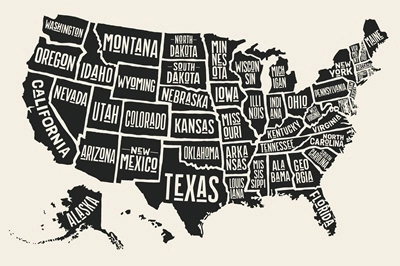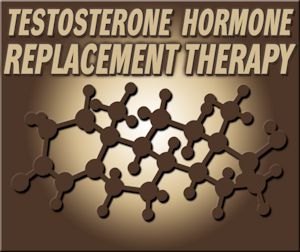The male hormone evolved 500 million years ago from estrogen.
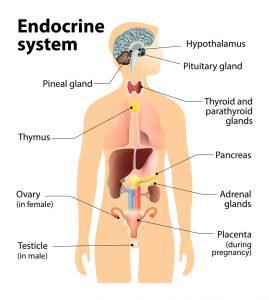 1. Both genders have testosterone circulating in their bloodstream, although women have far less. Testosterone is produced in the testicles, ovaries, and adrenal glands.
1. Both genders have testosterone circulating in their bloodstream, although women have far less. Testosterone is produced in the testicles, ovaries, and adrenal glands.
When pregnancy begins, the development of reproductive organs for males starts as well.
2. Testosterone regulates several processes from fat distribution to red blood cell production.
Video Link: https://vimeo.com/290612456
Video Download: Click Here To Download Video
Video Stream: Click Here To Stream Video
Also, testosterone is responsible for a man's sex drive, muscularity/strength, and bone mass.
3. People ascribed youth-restoring powers to the testicles for a long period.
Roman naturalist Pliny the Elder dined on hyena genitals for a sexually stimulating effect (with honey, of course...Yummy!).
For thousands of years, the search was on for the elusive, so-called “Fountain of Youth.”
Two thousand years later, many in the anti-aging and life extension communities refer to it as merely “T,” short for testosterone.
4. Kansas con-man John Brinkley, who inserted slices of goat scrotum into men’s testicles in the 1920s, claimed it would boost virility, sexual function and cure many ailments.
5. It's not just males who experience a skyrocketing sex drive while undergoing testosterone replacement therapy (TRT).
Testosterone can enhance a woman’s libido by targeting receptors in a section of the brain responsible for sexual activity.
6. Testosterone evolved over 500 million years ago from estrogen.
7. Testosterone is not gender-neutral. Normal levels for women are 5 to 7 percent of those for men.
8. As we age, testosterone levels decline.
Beginning at around age 30, testosterone levels start to decline in men at approximately 10% per decade. Do the math.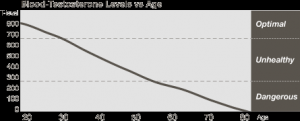
9. Testosterone demand is exploding.
In spite of the fear-mongering of ambulance-chasing attorneys, the market is expanding and shows no signs of slowing down.
In 2010, 1.3 million patients in the U.S. received a prescription for the hormone. That number leaped to 2.3 million in 2013.
10. Aging is the leading cause of virtually all afflictions, including decreasing levels of testosterone.
However, there are other factors involved, starting with obesity.
As the blubber piles on, more testosterone gets converted to an estrogen called estradiol, which further inhibits testosterone production.
11. “Low-T” (short for low testosterone) from obesity has vicious cycle characteristics since testosterone builds muscle seemingly by stimulating the production of Growth Hormone-Releasing Hormone (GH-RH), which correlates with lean body mass, so without testosterone, muscle mass is reduced, and metabolism falls, leading to potential weight gain.
12. It’s still not clear if the pros of testosterone treatments outweigh the cons/risks.
A few studies have found an increased risk of heart attacks among older men after starting testosterone therapy.
Other studies suggested a decreased risk of overall mortality.
The debate rages on, with both sides seemingly set in their ways.
The “testosterone is supposed to drop as men age, so just live with it, since Testosterone Replacement Therapy is dangerous” crowd, when pressed, repeats the same refrain: more research is needed, far more.
The problem with that approach is that this continued research could take decades to complete if it ever does.
Many men that are suffering the effects of Low-T feel that they do not have several decades to wait, and are willing to roll the dice.
This is and should be, an individual's decision, no different than any other medical procedure or disease treatment.
13. Testosterone was synthesized in 1935 after first isolation of another male hormone called androsterone, which was distilled from 4,000 gallons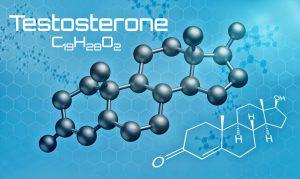 of donated urine.
of donated urine.
To this day, it is unknown who came up with the ingenious, unconventional idea to associate androsterone with urine.
14. Dutch researchers made the term testosterone that year.
15. There are more than thirty kinds of anabolic-androgenic steroids.
Synthetic compounds imitating testosterone’s chemical structure.
16. There is a relationship between aggressiveness and testosterone levels, but most research lacks evidence of a direct link, and some results are too contradictory to form any valid conclusions.
17. A study found higher levels of testosterone correlated with aggressive behavior in 12- and 13-year-old boys, but not in 15- and 16-year-old boys.
Studies on non-humans have found much stronger correlations between aggression and testosterone levels.
18. The impact and timing of testosterone production vary widely among species.
19. There is little evidence to support “natural” testosterone boosters: Elk antler velvet had no lasting effect on testosterone levels. Royal jelly worked well, however, only on hamsters.
Some men have claimed positive results from Tribulus Terrestris, Maca, DIM, Saw Palmetto, Indole-3-Carbinol, Epimedium (Horny Goat Weed), Zinc, DHEA (dehydroepiandrosterone), ZMA (zinc monomethine aspartate), and Fenugreek.
However, results vary, so your best bet is to experiment and see what works for you if anything.
20. Mixed research results aren't slowing down the testosterone booster bandwagon.
25 percent of individuals started treatment in 2013 without bothering to get a blood test to see if they had Low-T, according to the FDA.
21. In addition to natural testosterone boosters, many men are trying a wide array of methods that can help to boost testosterone naturally:
Exercise, including  resistance training with weights, exercise bands, or body-weight calisthenics; High-Intensity Interval Cardio training, which alternates short bursts of intense exertion, followed by a much slower pace; getting more sleep; losing weight.
resistance training with weights, exercise bands, or body-weight calisthenics; High-Intensity Interval Cardio training, which alternates short bursts of intense exertion, followed by a much slower pace; getting more sleep; losing weight.
Also, optimizing vitamin D levels by supplementing or spending 10-15 minutes (no more) in the sun without sunscreen; reducing stress; cutting back or eliminating sugar, adding more healthy fats to their diet, and consuming more protein, both from food and protein powder shakes.
Are you interested in learning more about testosterone? Contact our clinic.
Contact Us Today For A Free Consultation

- Common Chemicals Found in Plastic May Lower Testosterone Levels [Last Updated On: January 18th, 2024] [Originally Added On: September 29th, 2020]
- There is No “Testosterone Controversy” [Last Updated On: June 30th, 2024] [Originally Added On: September 30th, 2020]
- Is Your Leadership Ability Determined by Your Testosterone and Cortisol Levels? [Last Updated On: January 31st, 2024] [Originally Added On: October 1st, 2020]
- Recent Study Confirms: Testosterone DOES NOT Increase Heart Attack Risk! [Last Updated On: February 10th, 2024] [Originally Added On: October 5th, 2020]
- What You Need to Know About Testosterone Esters [Last Updated On: March 20th, 2024] [Originally Added On: October 7th, 2020]
- Research Makes a Case for Testosterone Replacement Therapy (TRT) [Last Updated On: December 21st, 2023] [Originally Added On: October 8th, 2020]
- Testosterone: How Much Do You Really Know About This Potent Hormone? [Last Updated On: July 16th, 2024] [Originally Added On: October 9th, 2020]
- Possible Health Benefits of Testosterone HRT (TRT) [Last Updated On: December 25th, 2023] [Originally Added On: November 20th, 2020]
- Testosterone Facts to Consider When Deciding on Testosterone Replacement Therapy [Last Updated On: April 6th, 2024] [Originally Added On: November 21st, 2020]
- Diabetic Men with Low Testosterone Run Higher Risk of Developing Atherosclerosis [Last Updated On: February 9th, 2024] [Originally Added On: November 22nd, 2020]
- Testosterone Propionate [Last Updated On: February 14th, 2022] [Originally Added On: January 17th, 2022]
Word Count: 892






